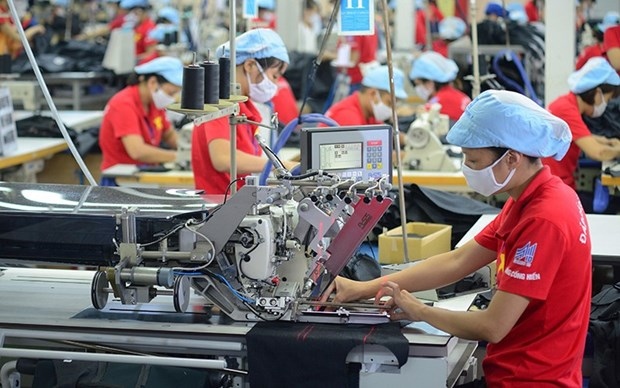Foreign investment from ASEAN important to Vietnam: HSBC
Although Vietnam always eyes to attract investors from US and Europe, intra-ASEAN investors are so important to the country, especially since foreign direct investment (FDI) is slowing down globally due to the COVID-19 pandemic’s impacts and geopolitical conflicts.
Among the 10 biggest investors in Vietnam, eight are from Asia.
Assessing Vietnam's investment partners, many economic experts said that FDI into Vietnam mainly comes from Northeast Asian countries and more recently China.
Joonsuk Park, head of International Subsidiary Banking and Wholesale Banking at HSBC Vietnam, said that FDI flows into Vietnam play a quintessential role and contributes to the growth story of the country.
“Foreign Direct Investments have been one of the key catalysts spurring and transforming Vietnam into one of the most open economies in the region,” he said.
A study by HSBC showed FDI investors or those regional and global multinational companies operating in Vietnam effectively contribute to over 80% of the total exports out of Vietnam and more than 25% of local investments. Of those multinational companies, the intra-Asian multinational companies compose the bulk.
The value of attracting the intra-Asian multinationals also translates into Vietnam stepping up not only in the value-add ladder in terms of export products but also concurrently in expanding the depth and breadth of the domestic consumption market.
“These top intra-Asian investors continue to maintain their focus on Vietnam,” the HSBC official said.
The annual investment inflows remain steady. Already coming into 2023, HSBC has witnessed interest from several global intra-Asian multinationals engaging across a wide array of sectors including retail, semiconductors, electronics, mobile parts, plastics, renewables, and logistics, looking to either expand or invest newly into the country.
“Replenishing the FDI flow back into Vietnam is of critical importance for both export and the domestic consumption market growth. And the intra-Asian flow cannot be underestimated. The intra-Asian investors have a keen understanding of the Vietnamese market from both a cultural and business practice perspective. The geographical proximity allows for the ease of travel for those Head Office decision makers,” said Joonsuk Park.
He added that many of the Asian markets themselves are export-oriented and hence understand the innate advantage of leveraging Vietnam’s rich free trade agreement platform. The growing middle income and wealth story in Vietnam also underpins their efforts to further penetrate the local domestic consumption market.

